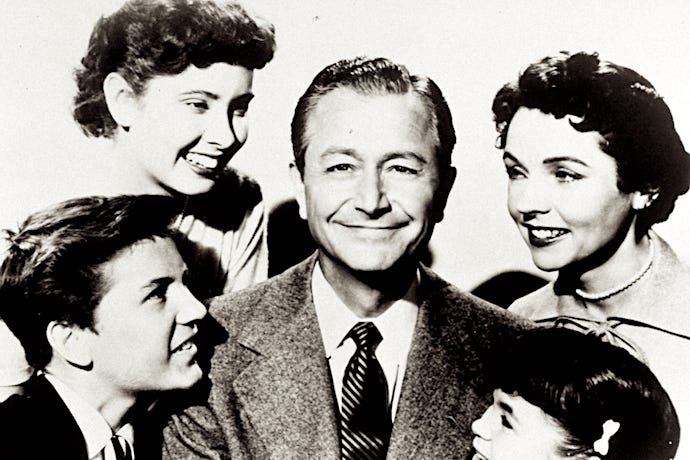Christianity Today magazine just can’t seem to leave exvangelicals alone. On October 19, they published Tish Harrison Warren’s commentary “The Church Needs Reformation, Not Deconstruction.” Then, just two days later they published a column by former Southern Baptist Convention bigwig Russell Moore, “My Dad Taught Me to Love the Exvangelical.”
Warren’s piece is a series of bad faith arguments not worthy of lengthy engagement. She insists exvangelicals and other critics of evangelicalism should “engage steelmen” rather than strawmen, all while setting up numerous strawmen of her own. For example, Warren misrepresents the exvangelical movement as generally shallow, suggesting that it’s largely a mistaken response to “a thin version of fundamentalism” and that it’s unable to appreciate the “whole tradition.”
Her commentary also contains plenty of concern for “justice,” though hers is a selective version as Warren deliberately joined a breakaway faction of the Episcopal Church, the Anglican Church in North America, which only exists to deny full equality and participation of LGBTQ folks in church life. Warren is a priest in ACNA, which is not recognized by Canterbury and is thus not a part of the Anglican Communion.
To her contention that exvies haven’t seriously dealt with the Christian tradition, there is presumably no standard of evidence that will satisfy her. But, given that Warren’s version of theological “orthodoxy” (which she clearly thinks is so much richer than that of a typical evangelical) is still anti-LGBTQ, she’s clearly not listening to where exvangelical objections lie, and her fetish for church authority is going to get a hard pass from exvangelicals as well.
No “orthodoxy” of any sort that Warren would recognize as valid is going to be acceptable to the vast majority of exvies, who are both justifiably skeptical toward any hierarchical church authority and who embrace LGBTQ inclusion. In addition, while hard data isn’t easy to come by, it’s well known at this point that many exvangelicals became exvangelicals precisely by taking our faith very seriously and finding it wanting.
Podcaster Blake Chastain, for example, who coined the hashtag #exvangelical, came to reject evangelicalism while studying New Testament Greek at an evangelical college, and he’s hardly an outlier. Another exvangelical I know converted to Eastern Orthodox Christianity and stayed there for a while, reading deeply in Warren’s beloved church fathers before finding he no longer had faith.
Being hurt by Christianity may have initiated the process of deconstruction for many of us, but the process doesn’t end there. What Warren refuses to face honestly is that exvies, Christian and non-, tend to find her “deeper” approach to faith just as objectionable as “thin fundamentalism,” because no matter how you dress up theology that harms marginalized people and enables abuse, your theology is still doing harm. And by the way, ACNA, unsurprisingly, has a pattern of mishandling abuse allegations.
Moore is less…
Moore’s piece is more difficult to dispense with, as it certainly comes across as more thoughtful and less dismissive of exvangelicals. Moore opens with a series of anecdotes about his late father. He tells us that his father was what people in evangelical subculture refer to as a “PK,” i.e., preacher’s kid. Due to that experience, Moore’s father didn’t want his son to go into ministry, though he was supportive when Moore chose to do so anyway.
PKs see “how the sausage is made” at the heart of their parents’ churches and denominations. What’s more, PKs are under a lot of pressure to put on a happy face and pretend nothing is wrong underneath the surface of the institution or institutions that employ their parent(s), even though drama and stress are common.
I know what I’m talking about here. For most of my life, my dad was a music pastor in evangelical churches (he’s now a music pastor in a mainline Protestant church), and my mom has been a Christian school teacher for decades. The children of people in such positions observe our share of mistreatment of our parents and other authority figures we care about, in addition to general pettiness, arbitrariness, power struggles, festering resentments, backstabbing, ghosting by supposedly close friends, etc.
Moore says he only recently made the connection between his PK father’s childhood trauma and his father’s spotty church attendance as an adult, for which Moore now regrets judging him too harshly. And this revelation, Moore claims, has taught him how to love exvangelicals.
Having disarmed his readers with a touching anecdote and apparent vulnerability, Moore shifts into Christian apologetics mode. Or, more accurately, however sincere the first part of his column may be (and for what it’s worth I think it’s largely sincere), it’s clear Moore’s been in Christian apologetics mode all along. By being honest about the dysfunctionality of churches, he sets himself up to play “good cop” to the “bad cop” of evangelicals who spew derisive nonsense about exvangelicals’ supposed hedonistic motivations and lack of intellectual seriousness.
But, as he states explicitly, Moore’s goal is the same: to reclaim the “lost sheep.” Another, albeit unstated, goal becomes apparent as well: if evangelicals are able to frame exvangelicals in this way—i.e., as individuals so wounded by the church they’re unable to find their way to the supposedly loving and salvific arms of Christ—they don’t have to engage with us in our own voices, on our own terms. They can retain control of the narrative in order to avoid any challenge to their Christian supremacist, patriarchal, anti-LGBTQ outlook. Tellingly, Moore’s piece (like Warren’s before it) doesn’t quote a single exvangelical.
In an earlier blog post about exvangelicals, Moore used a similar structure, admitting that there’s a great deal of hypocrisy among evangelicals. From that, he extrapolated this false claim about exvangelicals: “We are losing a generation—not because they are secularists, but because they believe we are.” His new CT column is more of the same:
Just this past week, I had multiple conversations with people who grew up in evangelical churches—some who had been very committed and devoted. And they had been hurt. They saw the church turn against them because they wouldn’t adopt as Scripture some political ideology or personality cult. Some had seen people they trusted revealed to be frauds or even predators.
Not one of them walked away because they wanted to curry favor with ‘elites’ or because they wanted to rebel. If anything, the posture of many of these people was not that of the Prodigal Son off in the far country so much as that of his father, waiting by the road for a prodigal they loved and wanted to embrace again: their church.
And then Moore moves to close the apologetics sale:
To one I said, ‘If you look at Jesus and the Gospels and you decide you cannot follow him, that’s one thing. But it would be a shame to avoid even looking at the claims of the gospel because you want to avoid at all costs what a church that hurt you said they believed. That’s even more the case when your problem is that they didn’t seem to believe what they said they believed.’
Moore may sincerely believe he’s doing exvangelicals a kindness by representing us as “lost” due to valid trauma, as opposed to simply “rebellious.” (I, for one, certainly did not deconstruct my faith out of a desire to be a rebellious child; I mostly swallowed my qualms for close to two decades precisely because I didn’t want to rock the boat with my family.) But Moore’s suggestion that we’ve not truly “looked at the claims of the gospel” is condescending and frankly insulting. In speaking for and over us, invoking tropes that fit his narrative rather than allowing us the space to relate our own experiences with our own framing, Moore is perpetuating harm against exvangelicals. I would contend that this is even more insidious than those who dismiss us outright, because it’s easier for us to dismiss them in turn.
Moore may claim that, “Jesus does not need us to do public relations for his 99 sheep still in the pasture; he needs us to go looking for the one who’s lost in the woods” (a reference to a parable found in Matthew 18 and Luke 15). But at the end of the day, PR for the church is exactly what he’s doing, even as he tries to return the “lost sheep” to the fold. By framing exvangelicals in those terms, Moore is still protecting the church. Indeed, he and Warren both focus on how flawed churches are as human institutions, and yet still insist that it’s never a valid choice to opt out altogether. That doesn’t change in Moore’s case just because he presents the choice to leave as understandable, given that many people have been hurt by Christians in church contexts.
Let me assure you, exvangelicals have heard variations on the “It’s just people who hurt you, not Christianity or Jesus” trope more times than we can count. And that trope is objectifying and condescending even when invoked with the best of intentions. What Warren, Moore, and other “respectable” conservative Christians avoid facing by using this framing is that exvangelicals—whether or not we remain part of some form of Christianity; have converted to another religion; are now spiritual but not religious; or are agnostic or atheist—have principled objections to their theology itself. Moore endorses “male headship” and female submission (frequently referred to these days by the more genteel term “complementarianism”). Warren, despite advocating female ordination, plays nice with those who object to it. Both insist that one cannot embrace one’s LGBTQ identity and be a Christian—or at least a Christian in good standing who’s allowed full participation in the life of the church.
“Kinder, gentler” conservative Christians like Warren and Moore seem to think that if they can simply dance around this issue in exactly the right way, they’ll change exvangelicals’ minds—or, failing that, at least keep the rest of American society from taking us seriously, which is almost certainly more important to them. This is why they’re transparently afraid to engage us directly, in a forum in which they’re unable to speak over us and reduce us to tropes they can exploit.
After Moore’s previous blog post on exvangelicals, I wrote him an open letter inviting direct dialogue. He never replied. I’d like to state for the record here that I’d still welcome a direct response. I do not, however, expect one. Moore and his ilk have no interest in actually existing exvangelicals who see the systemic misogyny, anti-LGBTQ animus, and racism present in conservative, mostly-white evangelical subculture as a natural outgrowth of evangelical theology itself—or, indeed, of what Warren views as a more serious “orthodox” theology. That’s just not a narrative they’re prepared to deal with.





